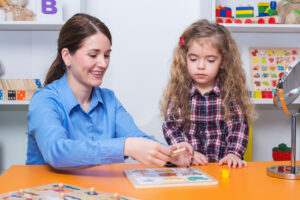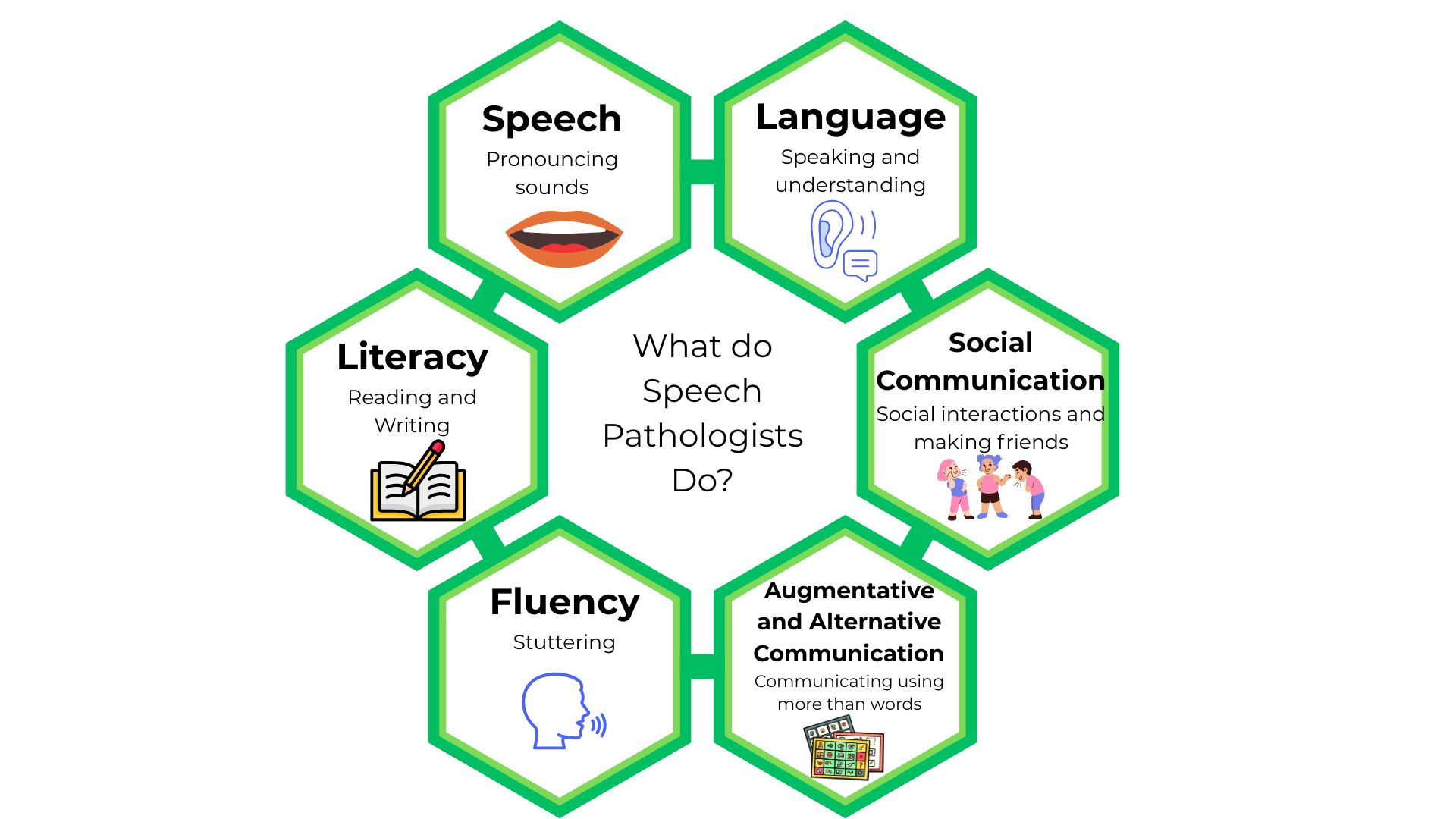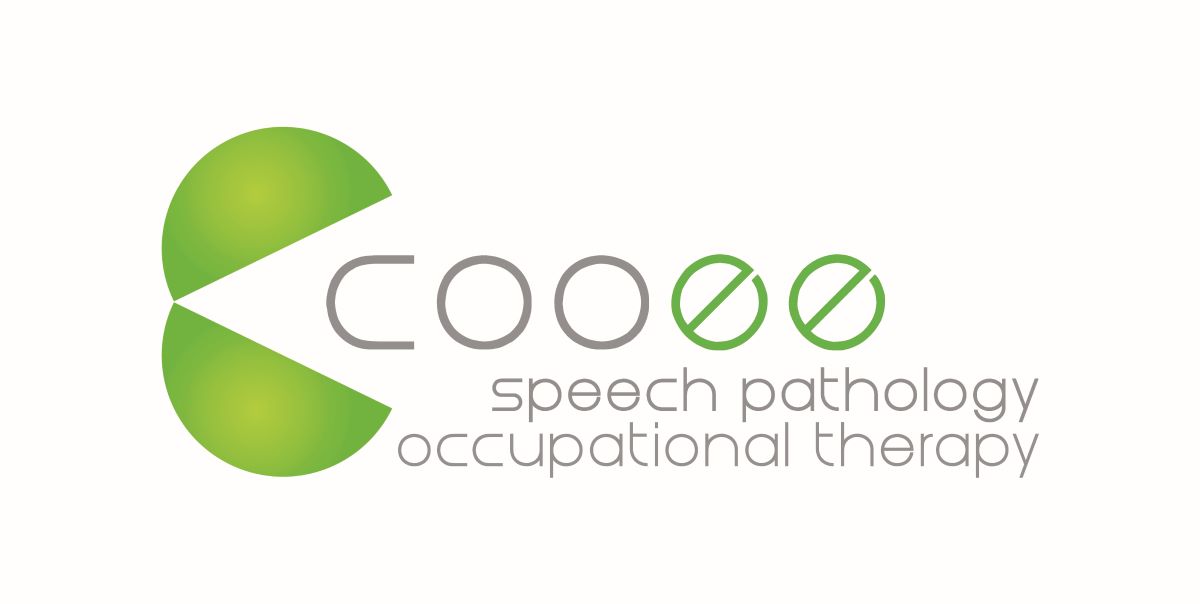What do Speech Pathologists Do?
 Speech therapist, speech pathologist, speech-language pathologist—whatever the title, speechies are passionate about helping people with communication and swallowing challenges. While you may have heard speech pathologists help kids with sounds like “r” and “s,” that’s just one small part of our role.
Speech therapist, speech pathologist, speech-language pathologist—whatever the title, speechies are passionate about helping people with communication and swallowing challenges. While you may have heard speech pathologists help kids with sounds like “r” and “s,” that’s just one small part of our role.
Here at Cooee, our speech pathologists help children and families with the following:

Let’s talk about these areas some more.
Speech Pathologists help children:
Be Understood
Have you ever noticed a child say something but can’t understand them? Some kids struggle with ‘speech’ production, making sounds unclear (e.g., saying “wed wabbit” instead of “red rabbit”). Others experience ‘fluency’ challenges like stuttering, where words can involuntarily become stuck or repeated. Speech pathologists help children improve pronunciation and speak more smoothly.
 Understand, Share and Connect
Understand, Share and Connect
Communication isn’t just about speaking—it’s about ‘language’ (understanding what others say, and putting words into sentences and telling stories) and social communication (starting an interaction, taking turns in conversation, changing the words we use when someone hasn’t understood). Speech pathologists help children develop the language to express themselves clearly and connect with others.
Read and Write
Some children struggle with reading and writing, also known as ‘literacy’—whether it’s sounding out words, understanding what they read, or organising ideas on paper. Speech pathologists help children make meaning of what they read, and express themselves on paper.
Communicate in a way that is Meaningful for them
 Communication looks different for everyone. Some children may use gestures, pictures, or technology instead of spoken words. Communication beyond just spoken words is referred to as’ Augmentative and Alternative Communication’. It’s about helping children to find their voice, whatever that looks like.
Communication looks different for everyone. Some children may use gestures, pictures, or technology instead of spoken words. Communication beyond just spoken words is referred to as’ Augmentative and Alternative Communication’. It’s about helping children to find their voice, whatever that looks like.
Who else do Speech Pathologists work with?
Speech pathologists don’t just work one-on-one with children—we team up with parents, teachers, and healthcare professionals to create individualised services for each child.
When Should You See a Speech Pathologist?
If you notice your child has difficulties communicating, whether that’s finding the right words to speak and make friends, understanding the words they hear and read, or using speech that others can easily understand, a speech pathologist can help.
If you have concerns, reaching out to a speech pathologist can be the first step toward unlocking your child’s communication potential.

Written by Speech Pathologist Robbie Corgat, June 2025.
